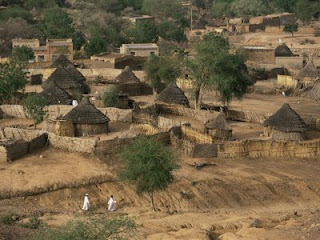Со тоа дека Никола Маџиров е најдобар поет од новата генерација македонски поети ќе се согласат повеќе луѓе и љубители на поезијата. Тука направив мал избор од 5 песни од неговата збирка 'Преместен камен'.
Сенките не одминуваат
Еден ден ќе се сретнеме,
како бротче од хартија и
лубеница што се лади во реката.
Немирот на светот ќе
биде со нас. Со дланките
ќе го помрачиме сонцето и со фенер
ќе се доближуваме.
Еден ден ветрот нема
да го промени правецот.
Брезата ќе испрати лисја
во нашите чевли пред прагот.
Волците ќе тргнат по
нашата невиност.
Пеперутките ќе го остават
својот прав врз нашите образи.
Една старица секое утро
ќе раскажува за нас во чекалната.
И ова што го кажувам е
веќе кажано: го чекаме ветрот
како две знамиња на граничен премин.
Еден ден сите сенки
ќе не одминат.
Градовите што не ни припаѓаат
Во туѓите градови
мислите спокојно скитаат како гробови
на заборавени циркузанти,
кучињата лаат на контејнерите и
снегулките што паѓаат во нив.
Во туѓите градови неприметни сме
како кристален ангел заклучен во
непроветрена витрина, како втор земјотрес
кој само го разместува веќе уништеното.
По нас
Еден ден некој ќе ги здипли нашите ќебиња
и ќе ги прати на хемиско чистење
од нив да го истрие и последното зрнце сол,
ќе ги отвори нашите писма и ќе ги реди по датуми
наместо по исчитаност.
Еден ден некој ќе го размести мебелот во собата
како шаховски фигури на почеток од нова игра,
ќе ја отвори старата кутија за чевли
во која ги чуваме паднатите копчиња од пижамите,
недотрошените батерии и гладта.
Еден ден ќе ни се врати болката во 'рбетот
од тежината на хотелските клучеви и
сомнежот со кој рецепционерот ни го подава
далечинскиот управувач.
Туѓите сожалувања ќе тргнат по нас
како месечина по заталкано дете.
Откривање
Веќе одамна никому не припаѓам
како паричка падната од работ на стара икона.
Расфрлен сум меѓу строгите наследства и завети
над ролетните на спуштените судбини.
Историјата е првата граница што треба да ја поминам,
го чекам гласот одвоен од созвучјето на послушноста
за мојата далечност што ќе извести.
Како бронзен споменик под плоштадот од ѕвезди сум
врз кој птиците ги вежбаат химните на надеж,
како пердув залепен врз лушпа од јајце се откривам,
за прерано заминување кој раскажува и
новиот живот што го навестува.
Домот секој ден
под шаторот на светот тајно ми се менува,
само детството е како мед
што не допушта туѓи траги во себе.
Тишина
Не постои тишина во светот.
Монасите неа ја измислиле
секој ден да ги слушаат коњите и
падот на пердувите од крилјата.

















